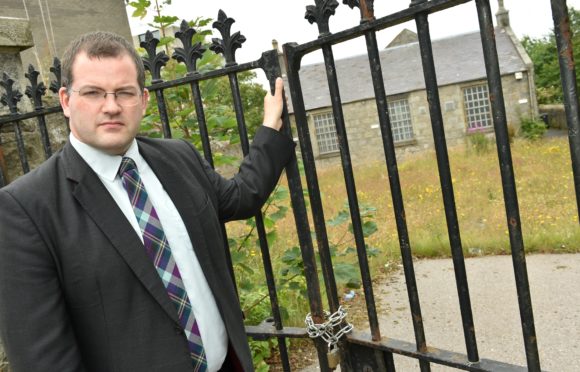Council bosses have been accused of “clawing back” more than £1.5million from a fund for vulnerable people.
The Scottish Government’s Self Directed Support act came into force on April 1, 2014 and places a duty on local authorities to offer more choice to people eligible for social care, and their carers, on how they receive their support.
As part of the programme, around £70milllion has been invested across the country between 2011 and 2018.
But new freedom of information figures reveal that since its implementation in Aberdeen in the financial year of 2015/16, the council has reclaimed more than £1.5million in “unused” funding.
This is cash that was not spent by the service user.
The peak year was 2018 where £777,977 was reclaimed from 347 clients – and the lowest 15/16 where £9,728 was taken back from nine.
Aberdeen Donside MSP Mark McDonald said more must be done to ensure the money is all used by the most vulnerable.
The independent MSP said: “I am absolutely stunned to discover that more than £1.5million has been clawed back by Aberdeen City Council since self directed support was introduced.
“The principle behind SDS was that it would be a means to empower people to take control of their care and support packages.
“Instead it seems many vulnerable individuals have been given little support to utilise the money effectively, resulting in massive amounts being reclaimed by the city council.
“There are legitimate questions that need to be answered regarding this information. What is the council doing to support individuals to use their self directed support payments effectively? What has happened to the money that was reclaimed from service users?
“While it is welcome to see the sums reclaimed are reducing from the huge figure in 2018, the council needs to provide an assurance that it will do all it can to ensure that these monies are spent for the purposes they were intended, to ensure those who are entitled to support are able to receive it.”
But last night a spokesman for the Aberdeen City Health and Social Care Partnership (ACHSCP) insisted that the system had changed in 2017/18 accounting for the large number that year.
ACHSCP chief finance officer Alex Stephen said: “Service users are given significant on-going support in using their SDS funding to ensure they achieve the best possible health and wellbeing outcomes.
“We keep a close track of individuals’ budget to ensure that the funding is being used effectively and we only seek to reclaim funding when it is clear that monies are not being used. This can be for a range of reasons, such as individuals’ changing circumstances.
“The reclaimed sums ensure that we have sufficient levels of funding to meet the needs of those people who meet the eligibility criteria.
“Aberdeen City Health & Social Care Partnership is about to move to a pre-paid card system for disbursing funding. This will give us a clearer picture of how funding is being used and will allow us to offer even closer support to our clients.”
